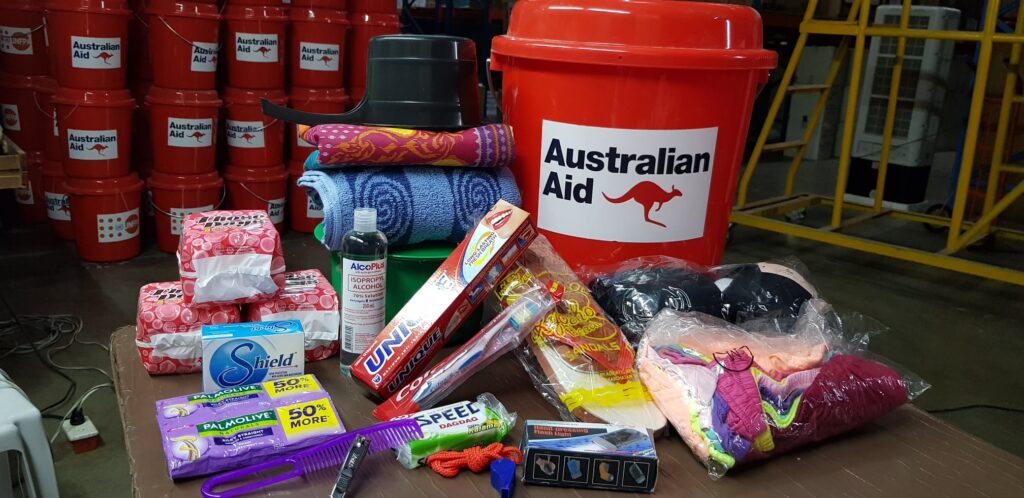World Vision and UNFPA partner to assist pregnant and breastfeeding mothers and women with disabilities in Rolly-stricken Catanduanes
Following the devastating impact of super typhoon Rolly (international name Goni) in the island province of Catanduanes, UNFPA, the United Nations Population Fund in the Philippines and World Vision are working in partnership to support pregnant and lactating mothers.

The first activity is the deployment of life-saving sexual and reproductive health commodities under the Australian Government Prepositioning Project to the Philippines. At least 1400 maternity and dignity kits that include toothpaste, toothbrush, bath soaps, underwear, and other personal hygiene items will be distributed to pregnant and lactating women and women with disabilities. Some 500 solar radios and water containers will also be provided.
“Women and girls during emergencies, particularly the pregnant and lactating women, are more vulnerable in times of disasters. Protecting their right to safe childbirth and sexual and reproductive health, especially in times of crisis, is non-negotiable,” underscores Rena Dona, Assistant Country Representative and Officer-in-Charge of UNFPA Philippines.
“Their safety ensures the safety of their babies. The First 1000 Days is crucial for a child’s development, starting from the day that she or he is conceived. This partnership will ensure that both the babies and their mothers are not left behind as we do our response,” shares World Vision’s national director Rommel Fuerte.
Supporting local health units and implementing cash for health initiative
With super typhoon Rolly causing massive damage to infrastructure like health facilities in the province, access to maternal health services may be disrupted.
To support the local health units’ continuity of service delivery, UNFPA and World Vision will provide power generators, and, if needed, set up Women-Friendly Spaces (WFS) and emergency maternity tent as temporary birthing clinics for pregnant women.
Meanwhile, the economic impact of the disaster could take a toll on women, and prevent them from seeking health services. To help address this, the “Cash for Health” program will incentivize women who will access pre-natal check-ups and give birth in health facilities. Cash assistance will also be given to around 100 barangay health workers who will be tapped to conduct community-based pregnancy tracking.








